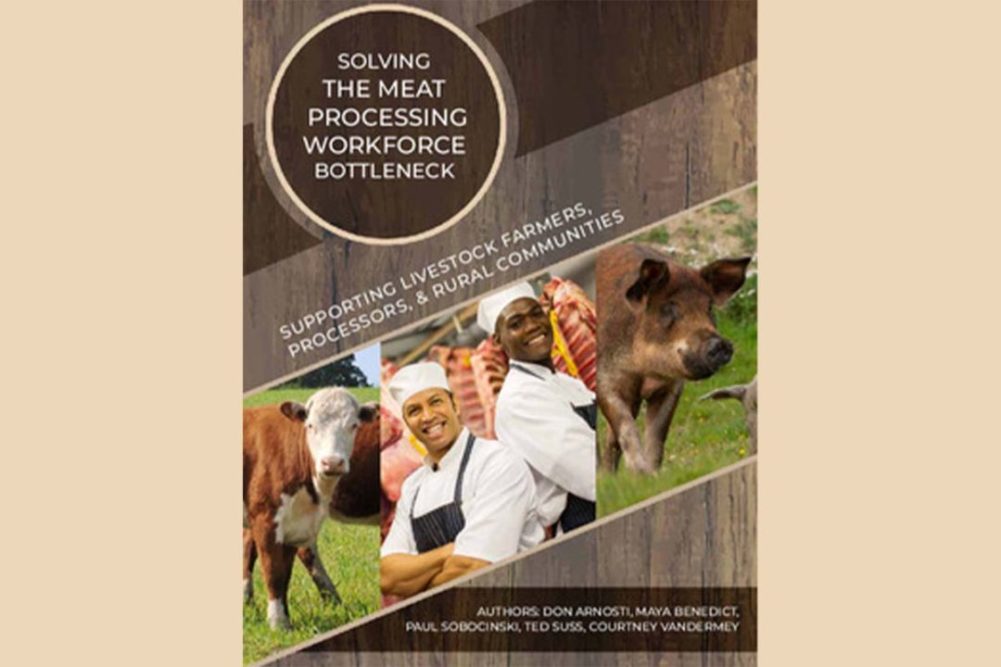T. PAUL, MINN. — The Minnesota Farmers Union (MFU) announced the findings of a recent report on the state of Minnesota’s small meat processors. According to the “Solving the Meat Processing Workforce Bottleneck” report, an abundance of Minnesota processor closures and appointments are leaving local livestock farmers with limited access to meat processing.
The University of Minnesota (UMN) Regional Sustainable Development Partnerships (RSDP) funded the study, with financial support from the Minnesota Department of Agriculture (MDA) and MFU. It was authored by Paul Sobocinski, farmer of Niman Ranch; Don Arnosti, local food connector; Ted Suss, Redwood County livestock producer; Maya Benedict, UMN graduate and former butcher shop operations manager, and Courtney VanderMey, MDA grant specialist.
“Local meat processors have been disappearing from rural Minnesota,” Sobocinski said. “Sustaining these businesses and encouraging them to source locally is vital for livestock farmers to access the more-profitable direct sales markets.”
After interviewing 57 small- to medium-sized Minnesota meat processors, the authors found that processors are at capacity, struggling to find long-term, reliable employees.
“We’re really struggling in the skilled labor section of the business — butchering, breaking down and processing. It’s a very skilled craft,” one of the locker owners said.
The authors’ main recommendations include:
- Creating a one-year apprenticeship for workers with hands-on training in slaughter and meat processing.
- Establishing a pool of funds for processors to access for trainee relocation packages, retention bonuses and training programs.
- Developing business transition training materials and resources.
“Livestock production in Minnesota is a vital aspect of our agricultural economy,” said Greg Schweser, RSDP’s director of sustainable agriculture and food systems. “Ensuring robust and thriving local meat production, processing, and supply chains requires a clear understanding of the challenges our processors are currently navigating. This comprehensive report takes a deep dive into their world and provides practical and actionable recommendations for supporting the future of local meat production in Minnesota.”

